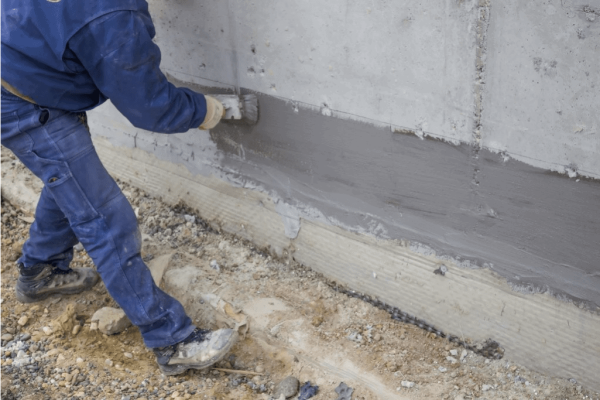Increasing Utility Bills
Ignoring damp doesn’t just compromise your comfort—it also hits your wallet. A damp home is typically colder because moisture in walls and floors draws heat out of the air. You’ll find yourself cranking up the heating more often, yet never quite feeling warm enough. This is because wet materials conduct heat away much faster than dry ones.
Here’s what that means for your energy bill:
-
Increased heating usage
-
Reduced insulation efficiency
-
Wasted energy from dehumidifiers or fans
Over time, this inefficiency can add hundreds of pounds to your annual utility costs. Not to mention, damp homes tend to be less energy efficient, meaning they often receive a poorer Energy Performance Certificate (EPC) rating—an important consideration when buying, selling, or renting.
If you’re concerned about your heating bills spiraling out of control, fixing damp at the source is one of the most cost-effective moves you can make.
Decreasing Property Value
From an investment standpoint, damp is a deal-breaker. Properties with visible signs of mould, flaking paint, or stained ceilings will instantly raise red flags for buyers, surveyors, and mortgage lenders. Even if the issue seems minor, the suspicion alone can lead to:
-
Lower offers from buyers
-
Refusal of mortgage or insurance
-
Longer time on the market
Potential buyers may walk away or demand that you reduce the asking price significantly to cover future repair costs. And in cases where damp has caused structural damage—such as wood rot or subsidence—the costs can easily run into the tens of thousands.
Taking swift action with the help of trusted damp specialists Christchurch not only protects your health but also preserves your home’s value and marketability.
The Role of Local Damp Experts
Benefits of Hiring Local Specialists
When dealing with damp, hiring someone who understands your region’s specific challenges makes all the difference. Local specialists bring more than just expertise—they bring insight into the type of construction, materials, and environmental factors unique to your area.
Here’s why going local is the smart choice:
-
Quicker response times in case of emergencies
-
Knowledge of common local building issues
-
Better accountability and follow-up services
-
Established reputation within the community
For instance, properties in coastal or humid areas like Christchurch face unique moisture challenges that require tailored solutions. A local team can diagnose and resolve issues faster and more accurately than a general contractor with limited area-specific experience.
That’s why homeowners consistently turn to experienced damp specialists Christchurch. With a thorough understanding of the local climate and housing stock, they provide durable and guaranteed treatments that solve the problem—not just cover it up.
Conclusion
Living in a damp home isn’t just uncomfortable—it’s dangerous. From respiratory issues and allergies to mould infestations and structural damage, the risks of ignoring damp are simply too great. Children, the elderly, and those with health conditions are especially vulnerable, and even healthy individuals can suffer long-term effects.
DIY fixes may offer short-term relief, but without professional diagnosis and treatment, the problem will only get worse—and more expensive. Moisture hides in walls, under floors, and in ceilings, silently chipping away at your health and property value.
The solution? Address the root cause early. Seek out expert help from trusted professionals who understand your home and your environment. Whether you’re noticing the first signs of trouble or dealing with an ongoing issue, damp specialists Christchurch offer the knowledge, tools, and local experience to put things right.
Take control of your home’s health today. Don’t let damp win.
FAQs
Can living in a damp home cause asthma?
Yes, living in a damp and mouldy environment can significantly increase the risk of developing asthma, especially in children. It can also trigger severe asthma attacks in those already diagnosed. The presence of mould spores and allergens inflames the respiratory system and reduces overall lung function.
How can I tell if my home has damp?
Common signs include musty smells, visible mould, peeling wallpaper, condensation on windows, and discoloured patches on walls or ceilings. If you suspect damp, it’s best to get a professional survey to determine the type and severity.
Is mould always visible when there is damp?
No, mould can grow behind walls, under floors, or in loft spaces—anywhere moisture collects. You might not see it, but symptoms like musty smells or persistent cold spots can be early indicators of hidden mould.
Can I fix damp myself, or do I need a professional?
While minor condensation can sometimes be managed with improved ventilation, most damp issues—especially rising or penetrating damp—require professional treatment. DIY fixes may mask the problem temporarily but won’t solve the underlying cause.
Are there government grants for damp repairs in the UK?
In some cases, local councils or housing authorities may offer grants or assistance for damp repairs, especially if it affects vulnerable individuals. It’s best to contact your local authority to find out what help is available in your area.
